Dialogue-shapers
—
Office for Public Play invited a group of children, aged 9-12 year, to explore, imagine and rethink their neighbourhood’s public space in relation to child culture and child friendliness. Dampoort is neighbourhood in Ghent in full transition. An urban renewal project was drawn up to revive the neighbourhood into one with more qualitative living: better housing, sustainable mobility, encouraging entrepreneurship and a greener, more climate-neutral neighbourhood. Citizens were invited to participate in this process, initiated by the city of Ghent.
Office for Public Play had a particular interested in children’s position in this context. How do local children experience their current neighbourhood? How they envision change? How to actively involve a group of local children related discourses that may contribute to processes of decision-making? Within the Pace-setters & Front-runners project, Office for Public Play initiated a series of playful dialogues: within the multicultural child group and between the children and other actors involved, such as their parents and local policy makers.
The concept of desire lines or ‘slow paths’ was used to explore informal ways of city planning (how do children playfully appropriate and envision public spaces) and rethink child friendly places in the city (slow paths being paths that are not accessible for cars).
In a first stage, the children explored and re-explored their neighbourhood through a series of play activities and ‘re-looking’ (Herrekijkers) exercises. This generated the ‘Front-runners Map’ with criteria for child friendly space in the city. In a second phase the children focussed on narrating imaginary places. Their stories, together with stories about child friendly places written by parents and policy makers, were collected in the ‘Invisible Paths’ book. These stories were used as material to initiate dialogue with Schepen Decruynaere, local policy maker for Education and Youth. The playful dialogue was triggered by a chair dance and shaped through role-play. Another dialogue was shaped with Schepen Watteeuw, local policy maker for Mobility, where the children negotiated their list of rights they want to acquire for child friendly space in the city.
Dialogue-shapers is part of the Pace-setters & Front-runners project by Trage Wegen VZW and zZmogh and a design researcher ‘Office for Public Play'. Dialogue-shapers was hosted at Pastory.
More information: www.gangmakersenkoplopers.be
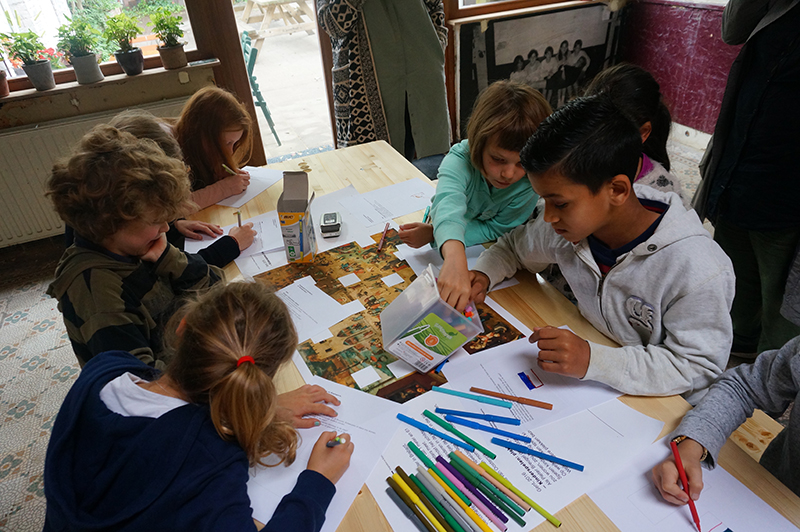
Updating Pieter Bruegel the Elder's "Children's Games" with children's favorite places in the city
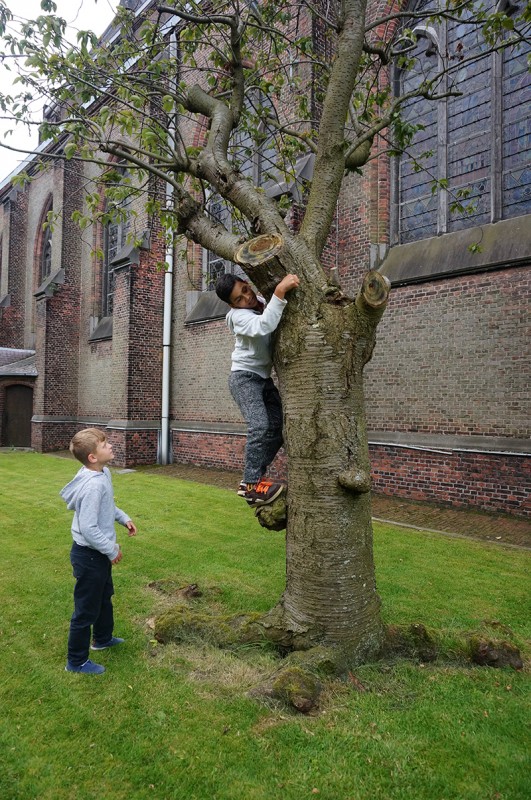
Re-discovering public space
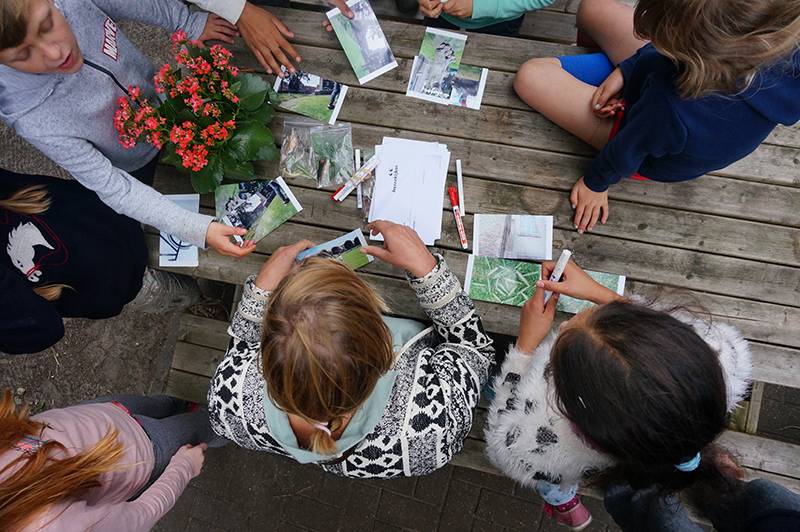
Re-discovering public space in their neighborhood through 'Herrekijkers': re-looking, imagining and creating.
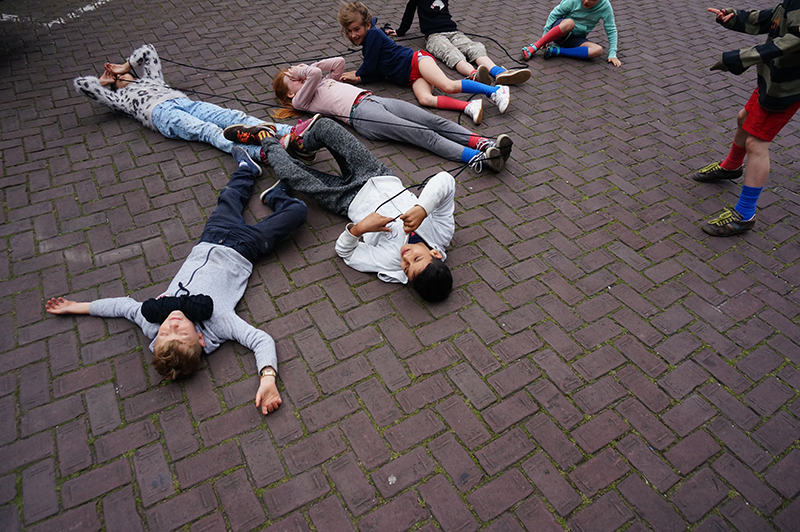
Re-discovering public space in their neighborhood through play activities

Re-discovering public space in their neighborhood through play activities
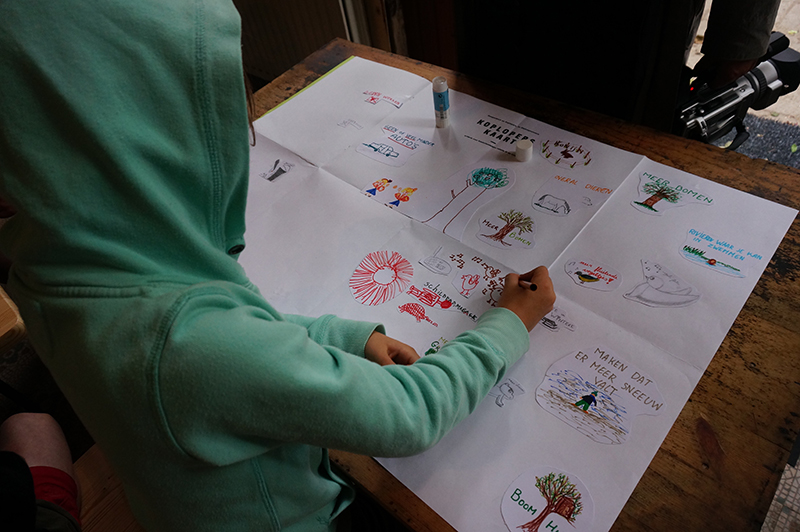
The ‘Front-runners Map’ with criteria for child friendly space in the city
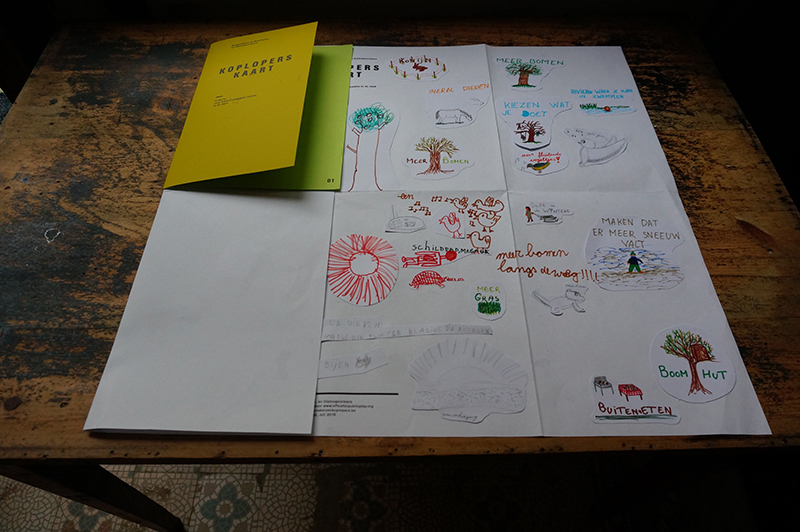
The ‘Front-runners Map’ with criteria for child friendly space in the city
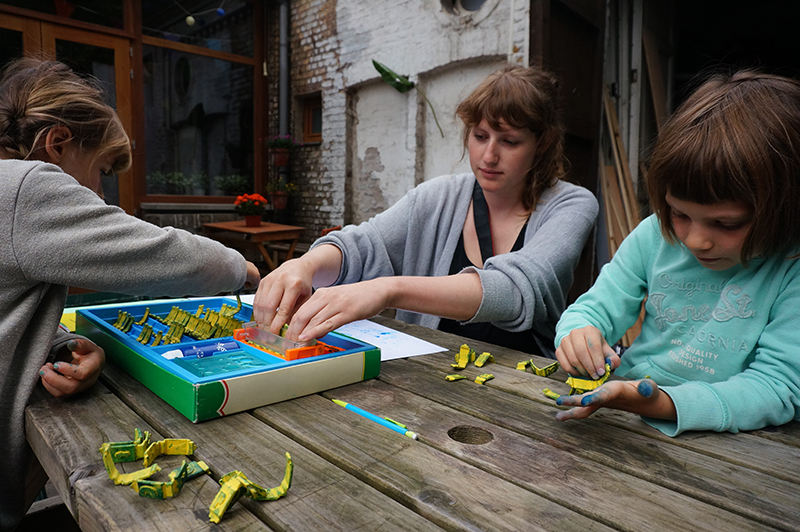
Printing stories the ‘Invisible Paths' Book for imagining child friendly spaces in the city
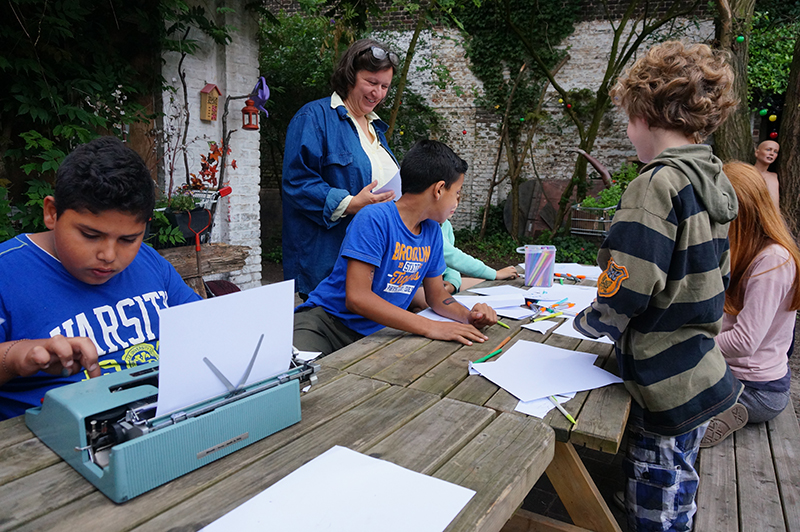
Making stories the ‘Invisible Paths' Book for imagining child friendly spaces in the city
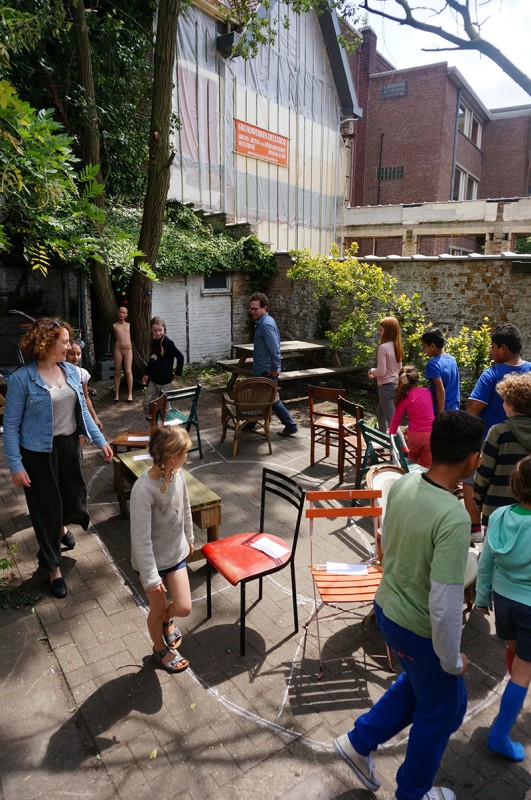
Playful Dialogue with Schepen Decruynaere, alderman for Education & Youth for the city of Ghent
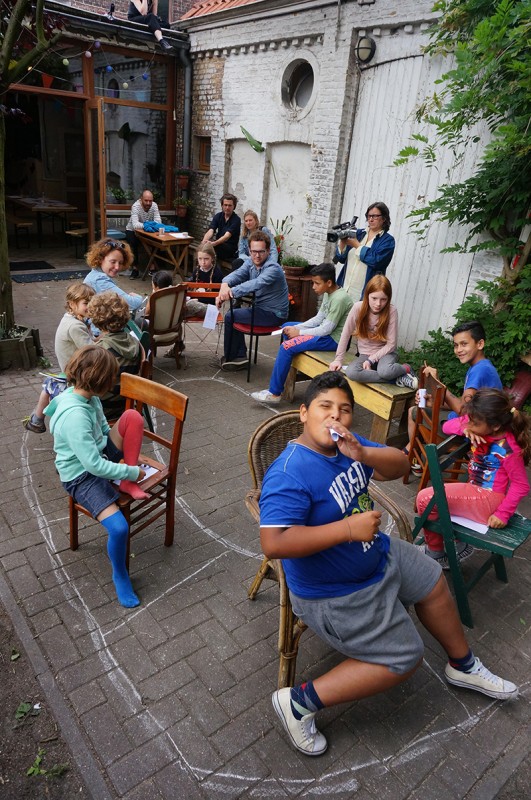
Playful Dialogue with Schepen Decruynaere, alderman for Education & Youth for the city of Ghent
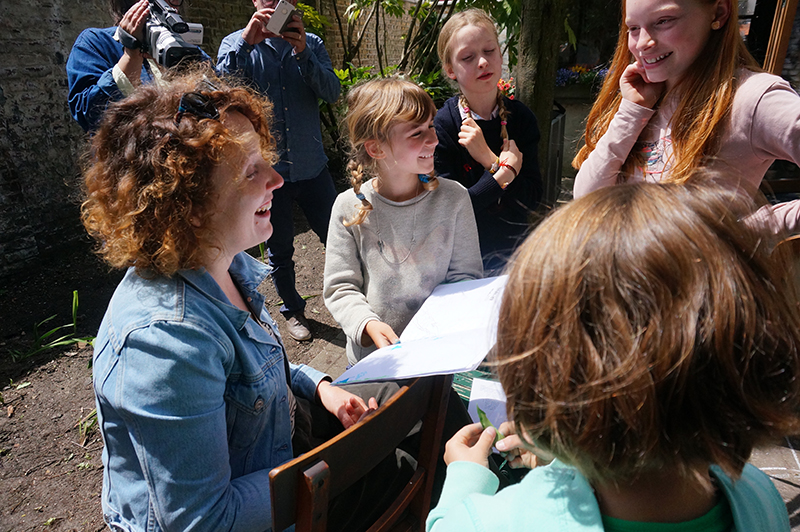
Playful Dialogue with Schepen Decruynaere, alderman for Education & Youth for the city of Ghent
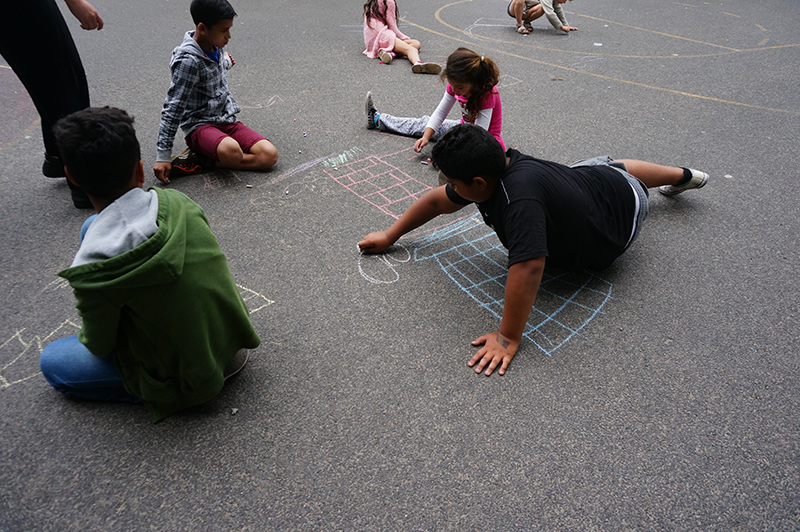
Envisioning rights for child friendly space in the city
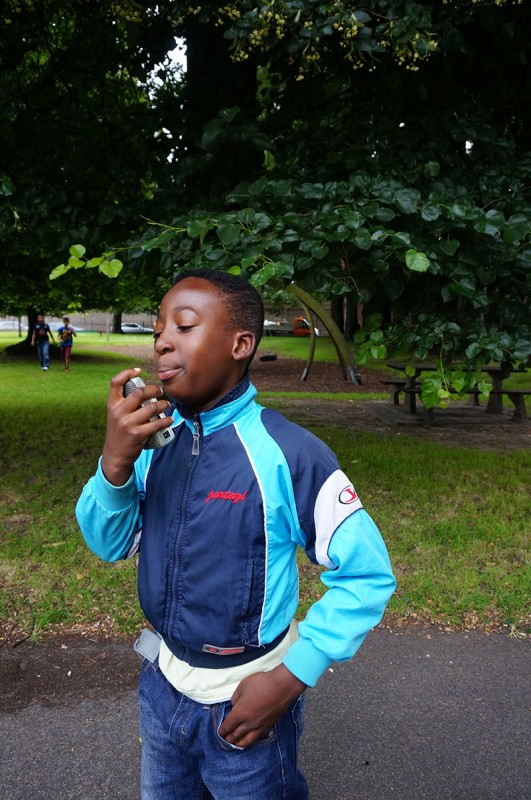
Envisioning rights for child friendly space in the city
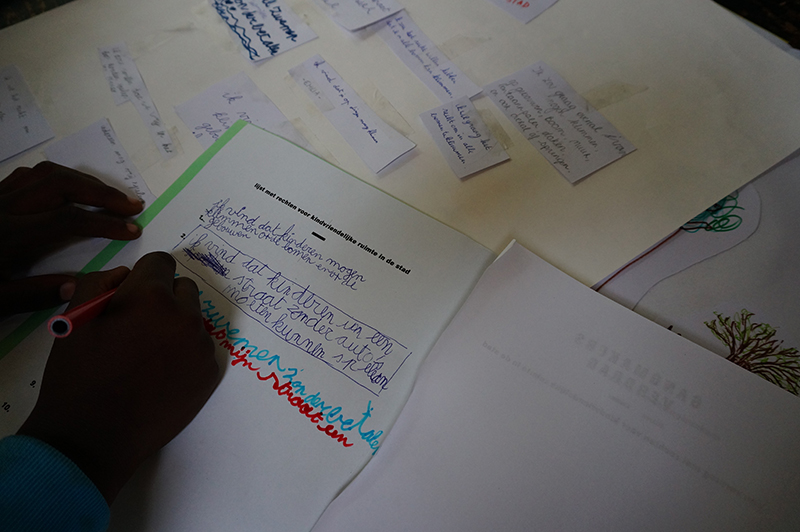
Making the 'Pace-setters Convention' with rights for child friendly space in the city
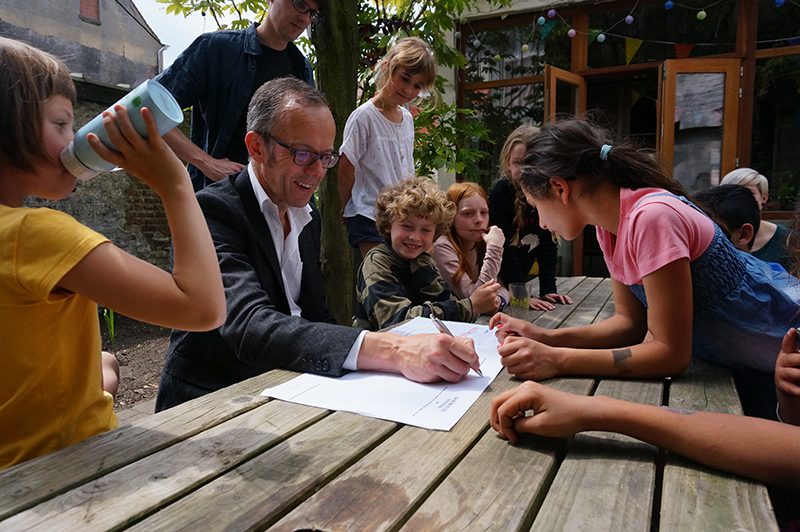
Playful Dialogue with Schepen Watteeuw, alderman for Mobility for the city of Ghent: negotiating the 'Pace-setters Convention' with rights for child friendly space in the city
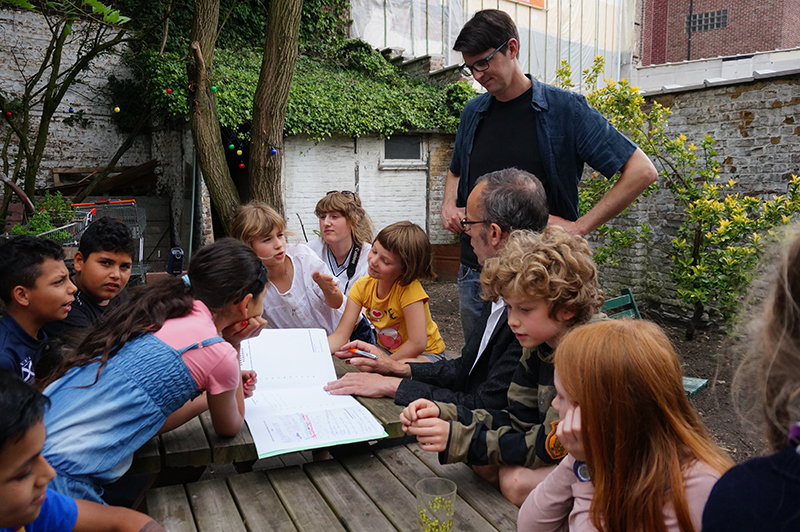
Playful Dialogue with Schepen Watteeuw, alderman for Mobility for the city of Ghent